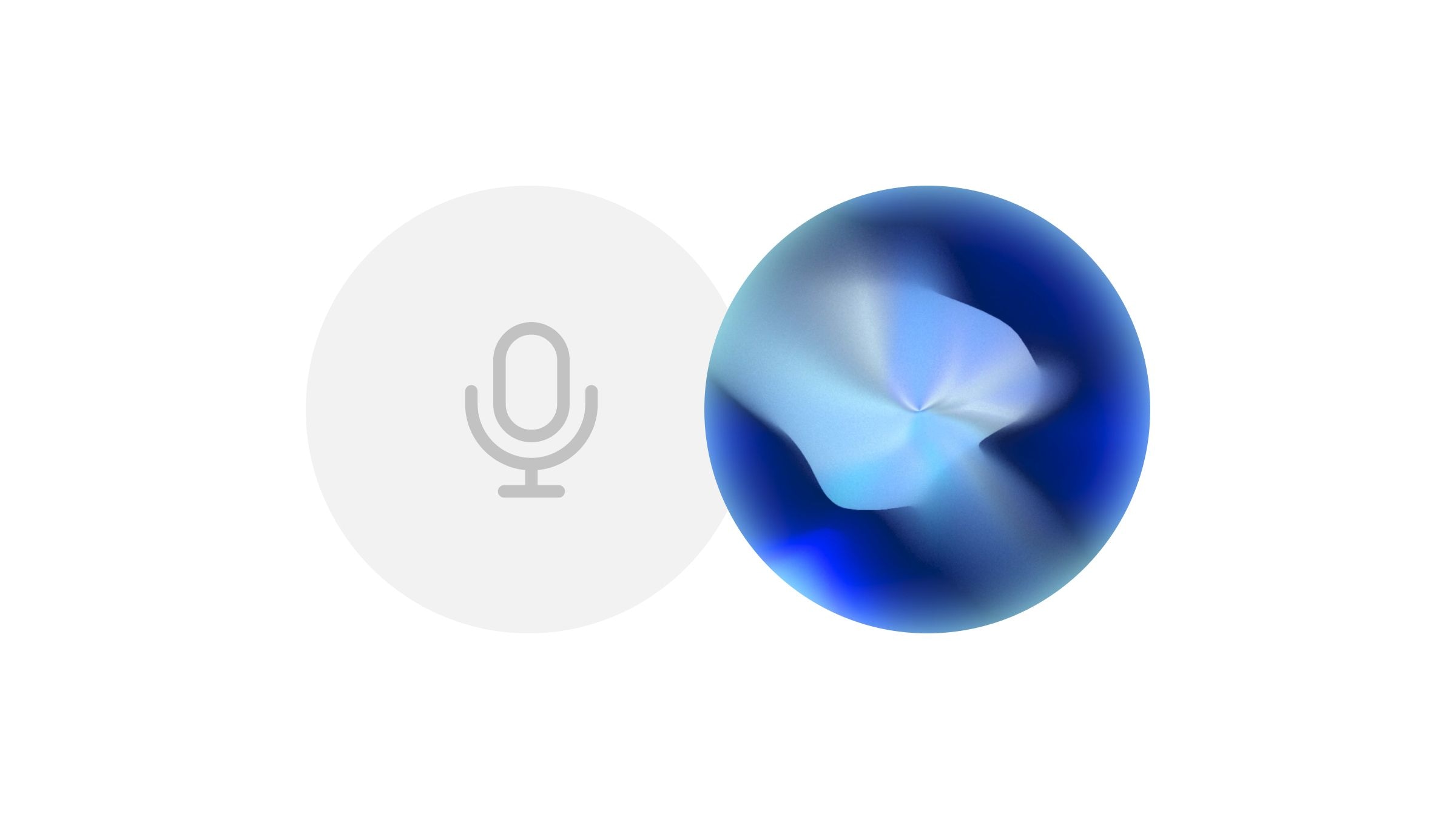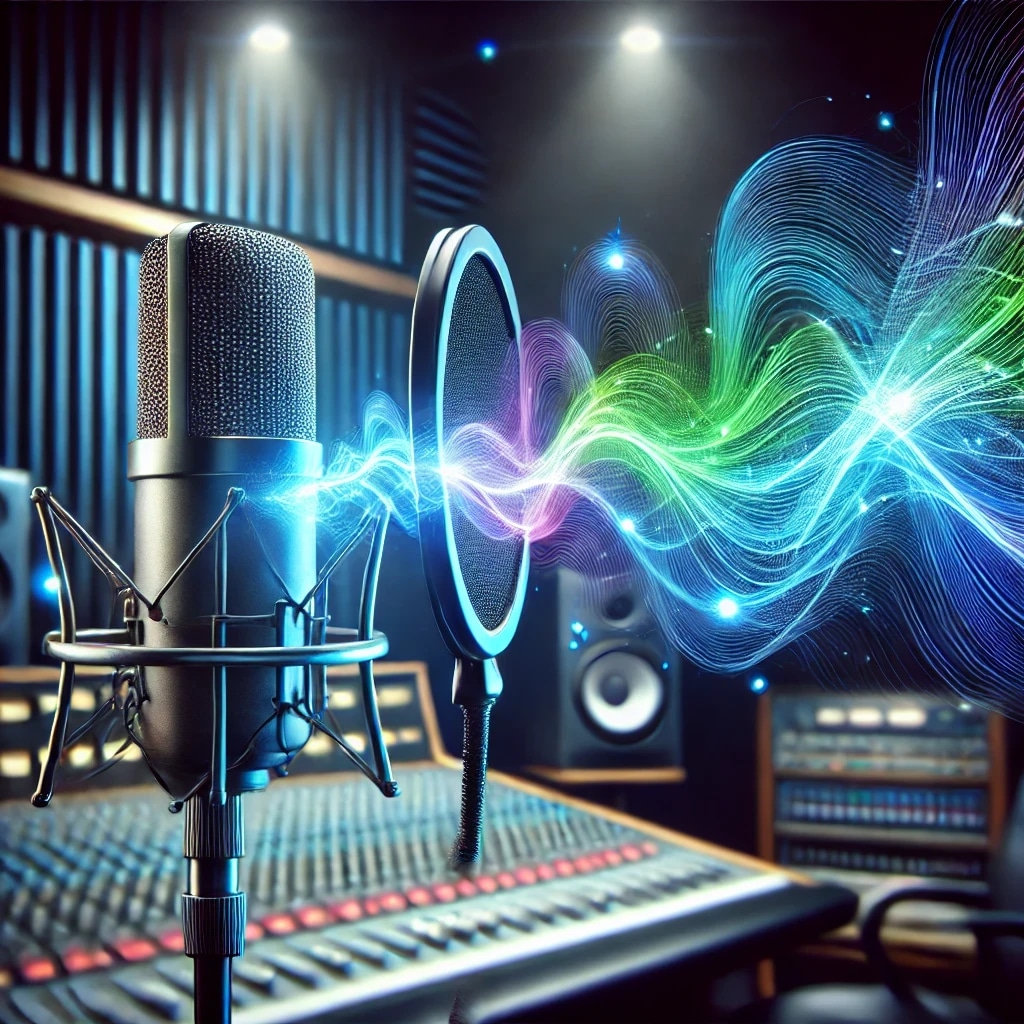
Automate video voiceovers, ad reads, podcasts, and more, in your own voice
Spoiler alert: We don't think so. Dive into this article to find out why.
In recent years, AI has appeared more regularly than not in new media. From video narration to radio commercials, video games to audiobooks, AI voices are everywhere.
As with any new and unique technology, there are many benefits and pitfalls to AI voice acting, and human voice actors may be concerned about their future in the industry.
In this article, we'll explore how AI affects the voice acting industry, the future of AI voice technology, and the ways voice actors can make AI work for them.

Since ChatGPT burst onto the scene in November 2022, AI is fast becoming part of our daily lives, and AI voices are no exception.
Asking virtual assistants like Siri to add an item to your shopping list is utilizing AI voice technology, as is listening to a podcast with AI narration or an AI-generated YouTube video. Some of these synthetic voices are so realistic that you may not be able to differentiate them from the real thing.
This realism is now a huge part of the voice acting business, where projects may choose to implement an AI voice to voice their characters rather than hire a human voice actor. However, this is not always the case, and artificial intelligence can not and will not replace voice actors.
One of the most popular ways that artificial intelligence is being used in voice acting is through 'voice clones.' Using speech synthesis tools such as ElevenLabs, voice actors can clone the sound, vocal pattern, and inflections they use in everyday speech for future projects.
AI voices can also be generated by using already developed voices (like in ElevenLabs' Voice Library) and editing their tone, timbre, and emotion to produce a new, unique sound for use in audiobooks, video games, and more.

Automate video voiceovers, ad reads, podcasts, and more, in your own voice
AI voice generation technology uses machine learning algorithms to successfully replicate voices from voice samples, thereby creating AI voice clones. While these synthetic versions may sound great and are constantly improving thanks to their advanced machine learning, they can't always compete with the real thing.
Here are just a few places where AI voice technology falls short:
In order to bring characters to life, voice actors bring creativity to every role - something AI can't replicate. Voice actors may draw from their own life experiences to improvise and adapt, which artificial intelligence can't do.
Human voice actors bring real emotion to their voices, and tones and timbre can reflect moods such as pain, sadness, or joy. AI may be impressive at replicating normal speech, but it is challenging to replicate certain emotions.
Only a few tools, such as ElevenLabs, provide emotionally expressive voices. ElevenLabs features a wide range of emotional styles, including angry, seductive, screaming, sultry, strange, creepy, and raspy voices.
Human voices have cultural nuances, such as regional accents, that make them unique. AI may be able to learn these, but understanding local sayings and jokes does not equate to a lived experience.
Voice actors can adapt to new changes and unscripted situations and improvise on the fly, all of which AI cannot yet do. Unanticipated scenarios are not AI's strong suit, where a voiceover artist would be able to adapt seamlessly during a recording session.

AI voice technology is making significant strides. So, instead of asking whether AI voices will replace human voice actors, it's important to reframe the discussion.
Are there was that voice actors can harness AI voice technology to earn more money and work more efficiently? Instead of taking jobs, could it be that AI voice tools will become an integral part of a voice actor's career?
The answer is yes. AI tools will complement voice acting, not replace it, by streamlining work processes for voice actors and industry users. The potential benefits of AI voice technology include:
Voice actors can use AI tools to modulate their own voices, allowing them to change pitch and tone to fit any character using their very own voice. Being able to create new sounds on demand is key to diversifying your career and portfolio.
One of the largest costs for a voice actor comes in the form of expensive recording equipment or rent paid on recording studios. Projects require a high-quality, crisp voice output, which means expensive equipment is a must. Yet AI tools could change this by automatically cleaning up audio output, removing background noise and small mistakes.
Scripts often need edits, and AI can look through any given script for a recording session and suggest appropriate pacing and emphases for each line, leaving voice actors with some great suggestions to take on. This will save time for a voice actor, allowing them to produce (and earn) more.
Many voice actors are only physically able to take on a few projects at a time, because of time constraints and the impact of overwork on their most valuable tool: their voice. By harnessing AI, voice actors can create more output, speeding up delivery times and increasing their earning potential.
Voice acting can be a difficult job, with gruelling schedules and long work days. Many voice actors work on a freelance basis, meaning time off is often time unpaid. Once a project is complete, it's up to the voice actor to find another one. To remedy this, ElevenLabs is now paying voice actors for the use of their voice on the platform. This is a great source of passive income, and can provide a stable way of earning money without needing to work.
Human emotion can't be replicated to a gold standard in an AI-generated voice, and only real human voices can perform human speech. However, creating a voice using AI technology has its advantages, such as:
While the above may seem great, there are also disadvantages and new challenges to using AI voice generation, such as:

Create human-like voices with our Text to Speech (TTS) system, built for high-quality narration, gaming, video, and accessibility. Expressive voices, multilingual support, and API integration make it easy to scale from personal projects to enterprise workflows.
While the world may be changing, and the pendulum appears to be swinging toward AI, humans still lead the charge for voice acting. So, when the question "Will AI replace voice actors?" is posed, it can be definitively answered.
AI is a trusty partner for voice actors, helping them bring their talent to more avenues and earning extra income, too. The future of voice acting will be a collaborative effort, where humans are center stage, and AI helps from behind the scenes.
Although the new technology is fast developing, there will not be a future where AI tools replace voice actors completely. Instead, AI is a fantastic opportunity for voice actors to improve efficiency, take on more projects, and increase their earning potential.
To turn your voice into passive income using ElevenLabs, sign up here.
ElevenLabs stands at the forefront of AI voice generation technology. We offer a selection of 120 unique voices in 29 languages. What’s more, our tool's intuitive interface lets you fine-tune your audio, whether you're producing an audiobook or adding flair to video game narration. Trusted by digital creators worldwide, Eleven Labs sets the standard for lifelike, versatile, and secure AI-generated speech.

Supporting 10,000+ research conversations with natural, trustworthy voices
.webp&w=3840&q=95)
One year ago, the ElevenLabs Impact Program set out to provide one million voices to people with permanent speech loss caused by conditions such as ALS, head and neck cancer, cerebral palsy, and PSP. Today, we’re taking a major step toward that goal.
Powered by ElevenLabs Agents